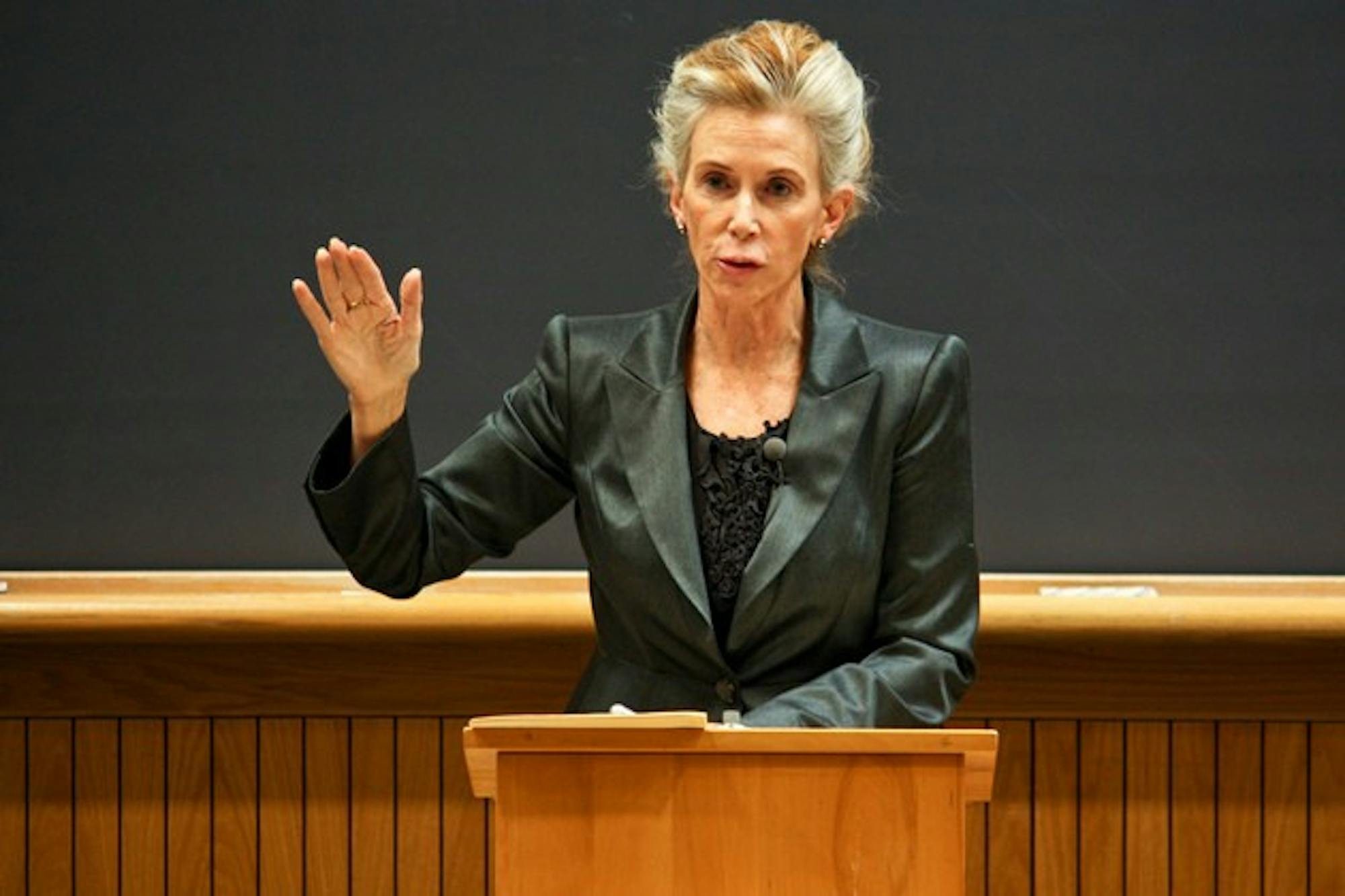MacKinnon said that, in order to address gender inequality, people have to recognize the effect of sexual violence on women.
"Overcoming the denial of atrocities is the well worn path to becoming human," MacKinnon said.
MacKinnon pointed to the perceived male domination of the legal system as perpetuating gender inequality. When taken advantage of by a man, a woman goes to court only to have her fate decided by more men, a problem that MacKinnon said is at the center of women's unequal status.
About 44 percent of women have experienced rape or attempted sexual assault, she said, adding that 37 percent of teenagers and young girls are sexually assaulted.
MacKinnon also said she was frustrated that people, and particularly men, do not respond well to the term "inequality." She noted that women's rights activism with a specific mission, like ending human trafficking, is often more effective than efforts intended to combat inequality in general.
MacKinnon, however, said that she is optimistic about the future of women's rights. She cited Sweden's approach to prostitution, which involves charging the men involved in prostitution rather than the prostitutes themselves, as a positive step.
In response to a question comparing the success of women's movements in the United States and Latin America, MacKinnon described the movements in Latin America as among the most well organized in the world. She cited the close relationship between women involved in those movements and female lawyers as the key to success in Latin America, a relationship which she said is lacking between feminists and elite women lawyers in the United States.
These efforts have laid a foundation for further action against inequality, she said. MacKinnon said she hopes to change the status of women, particularly those who have been sexually exploited, to begin to "give back the humanity that the rapist takes away."
Renowned for her scholarly publications as well as her pro bono legal representation of sexually exploited women, MacKinnon is a "fearless and tireless advocate of women worldwide," according to Dartmouth philosophy professor Susan Brison, who introduced MacKinnon. MacKinnon has "listened to women and taken their problems seriously as no one has previously," Brison said in her introduction.
Her accomplishments include a $745-million victory in Kadic v. Karadzic, in which she represented Bosnian and Croatian women in a lawsuit against Serbs accused of genocidal sexual offenses, and ordinances recognizing pornography as a civil rights violation. She has written about gender relations and women's issues, most recently in her book, "Are Women Human?" (2006).
MacKinnon's address, the 2009-2010 annual William H. Timbers '37 Lecture, was sponsored by the Dartmouth Legal Studies Faculty and the Dartmouth Lawyers Association.




